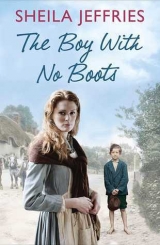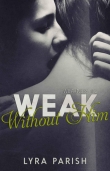
Текст книги "The Boy with No Boots"
Автор книги: Sheila Jeffries
Жанры:
Роман
,сообщить о нарушении
Текущая страница: 1 (всего у книги 16 страниц)
THE BOY WITH
NO BOOTS
By the same author:
Solomon’s Tale
Solomon’s Kitten

First published in Great Britain by Simon & Schuster UK Ltd, 2015
A CBS COMPANY
Copyright © Sheila Jeffries, 2015
This book is copyright under the Berne Convention.
No reproduction without permission.
® and © 1997 Simon & Schuster Inc. All rights reserved.
The right of Sheila Jeffries to be identified as author of this work has been asserted in accordance with sections 77 and 78 of the Copyright, Designs and Patents Act, 1988.
Simon & Schuster UK Ltd
1st Floor
222 Gray’s Inn Road
London WC1X 8HB
www.simonandschuster.co.uk
Simon & Schuster Australia, Sydney
Simon & Schuster India, New Delhi
A CIP catalogue record for this book is available from the British Library
Paperback ISBN: 978-1-47113-765-5
EBOOK ISBN: 978-1-47113-766-2
This book is a work of fiction. Names, characters, places and incidents are either a product of the author’s imagination or are used fictitiously. Any resemblance to actual people living or dead, events or locales is entirely coincidental.
Typeset by Hewer Text UK Ltd, Edinburgh
Printed and bound in Great Britain by CPI Goup (UK) Ltd, Croydon CR0 4YY
To my two stars, Pete and Jade, in memory of ‘Grandad’
Contents
Chapter One: THE TREACLE JAR
Chapter Two: LIES
Chapter Three: BROKEN CHINA
Chapter Four: GRANNY BARCUSSY
Chapter Five: A RED RIBBON
Chapter Six: ‘SHADES OF THE PRISON-HOUSE’
Chapter Seven: THE GOLDEN BIRD
Chapter Eight: PLAYING TRUANT
Chapter Nine: THE BONDING
Chapter Ten: THE LONELINESS OF BEING DIFFERENT
Chapter Eleven: HE WHO DARES
Chapter Twelve: FOREVER BLOWING BUBBLES
Chapter Thirteen: THE ‘BEE-LOUD GLADE’
Chapter Fourteen: THE STONE GATEPOST
Chapter Fifteen: THE WATER IS WIDE
Chapter Sixteen: LITTLE BLUE LETTERS
Chapter Seventeen: THE ROAD TO LYNESEND
Chapter Eighteen: FLOATING
Chapter Nineteen: THE TURN OF THE TIDE
Chapter Twenty: TREAD SOFTLY
Chapter Twenty-One: TRUSTING THE DREAM
Chapter Twenty-Two: ONE YEAR LATER
A Note From the Author
Acknowledgements
Chapter One
THE TREACLE JAR
Annie waited at her garden gate, an earthenware jar clutched in her swollen red hands. If she stared deep into the landscape, she sometimes glimpsed the shine of Freddie’s hair as he bobbed along the lane below the tall elm trees. Her face was hot with anxiety. Under the stained apron, Annie’s heart was dark with guilt. A woman of your age, Annie. Dependent on a seven-year-old child! But that’s what she was. And only Freddie knew why.
Freddie had rescued her when she’d been clinging to the railings outside the Post Office, too terrified to move. He’d led her home on her stone feet, plod by plod, and stilled her trembling with his bright unwavering gaze.
On that October afternoon, Freddie’s footsteps were slower and slower as he trudged home from school. His face was purple, half of it a bruise from where Mr Price had thrown a book at him for daydreaming, and the other half a brighter purple from the blackberries he’d been eating. His four pockets bulged with wet beechnuts, and he smelled of autumn. Blisters scorched his small feet from walking a mile to school and a mile home in a pair of wooden clogs.
‘Don’t you dare take them off,’ Annie had warned.
‘No, Mother.’
‘If you do, then you take your socks off, too, and walk barefoot, and I’m not darning them, Freddie. Understand?’
‘Yes, Mother.’
He dreaded being given the job of darning his own socks with the long bodkin threaded with scratchy grey wool, the smooth wooden darning egg, and the hours of misery, weaving and picking and unpicking, and being scolded as he worked in the square of light from the cottage window.
Freddie paused in the lane. He didn’t want to go home. It wasn’t that he didn’t want to see his mother. It was what she would make him do.
The west wind was swishing the elm trees, their oval leaves flickering through the blue air to assemble in thick drifts that filled the lane with gold. Freddie sighed. If only he could paint it. What he longed for most was a paintbox and a brush, but where would he get paper? Tonight he had to do his homework on lavatory paper, a roll of thin tracing paper, shiny one side and dull on the other.
He sat down in his favourite gateway, sinking into the inviting toastiness of fallen leaves. He scruffed them up with his small hands, covering his knees until he had completely buried his legs. Like a Babe in the Wood, an afternoon babe. Perhaps he would nod off to sleep in the drowsy sunshine. Freddie leaned back against the elm trunk and studied the colours on the wooden gate, a glaze of lime green, little hoops of silver, burning blotches of mustard-coloured lichen. This hot and textured colour framed the Somerset landscape with its lines of pollarded willows notating the fields like a page of music dip-dyed in the mystic blue of the Mendip Hills.
Freddie decided to eat ten of his precious beechnuts to fill the ache in his stomach. He counted them out carefully, laying them in a line along the lower bar of the gate. Then he peeled them, the brittle cases gleaming auburn in the sun, and cupped the tiny triangular nuts in his hand. He put them into his mouth all at once. That way they tasted nuttier and made more of a mouthful. Freddie liked autumn. He liked the mellow sun and the apple orchards, and the morning puddles curled with interesting ice. Autumn was full of ripe berries and hazelnuts. One morning Freddie had found a mushroom the size of a dinner plate growing in the field. Annie had fried it in goose fat and seven of them had feasted on it.
He sat for longer than it took to eat the ten beechnuts, licking the crumbs from his teeth, and picking ‘old man’s beard’ from the hedge. His blue inquisitive eyes stared into its tendrils, wondering at the wisps of fluff protecting the clustered dark seeds. He picked a rose hip and twirled its leathery scarlet fruit thoughtfully between his finger and thumb. He noticed that its black top was a perfect pentagon, and Mr Price had drawn a pentagon on the blackboard that day for them to copy on their slates.
‘Like a haystack,’ he’d said. ‘A pentagon. Like a haystack.’ That was before he threw the Palgrave’s Golden Treasury at Freddie’s head.
‘Stupid boy – daydreaming again! Is that how you’re going to live your life?’
The bruise ached and his eye hurt when he blinked. The longer he sat buried in the golden elm leaves, the drowsier Freddie became. The bees buzzed deeper, and the starlings began their four o’clock twittering, filling the half-bare poplars with a black rippling as if someone had scattered them into the light. Freddie listened, and through the mosaic of the starlings’ song, he could hear Annie calling him.
‘Freddie! Fred!’
A little wind-blown voice from such a huge woman, the cry was a blend of anger and genuine desperate need. Freddie sighed and shoved his feet into the hated clogs.
‘Coming.’
He clumped down the lane, hearing the church clock striking four. Why was he late? He could see the cottage now with its sagging thatch. He heard the chickens muttering and smelled the coke oven. Tiredness draped its threadbare cloak over his small shoulder blades. He longed to go inside and creep to the brown corner by the window and read his brown book, and disappear into the brown comfort of home.
But his mother was there, as he knew she would be, standing at the wicket gate, brandishing the dreaded jar. She was like the earthenware jar, solid as fired clay, but old, the glaze cracked, the smile chipped, the knowledge gone stale inside. In that moment, Freddie felt glad he had a mother to soak up his tiredness. He leaned on her, his cheek against the heavy damp apron, which smelled of cheese. He could sometimes make her be a proper mother, even when she didn’t want to be. He made cracks in her earthenware armour.
She pushed him away.
‘Get on down the shop,’ she said. ‘They’ve got some treacle.’
‘I want a drink.’ Freddie turned on the garden tap and guzzled the cold bright water.
‘Hurry up. The queue will be long. Don’t come back until you’ve got some.’
It was no use appealing. Freddie digested Annie’s expression as he took the jar with both hands. He saw the frustration in her eyes. Then a spark, a frown of concern.
‘Freddie?’
‘Yes Mother.’
‘What happened to your face?’
‘Mr Price threw a book at me.’
‘What for?’
‘Daydreaming.’
‘Serves you right. You go on now and get that treacle.’
Freddie turned and walked off as smartly as he could, his little back square with anger. Not again. Please not again, Mother. Every day I have to stand in that queue. Why me? I’m tired out from school. I’m starving hungry. I get cold in the queue. Do I have to? Why can’t I have boots? Why is there a war? I didn’t want the war, did I?
The sunlight was lengthening bars of amber gold as Freddie reached the village. He walked past the blue-lias cottages with their scrubbed hamstone sills, past the church with its monster yew tree covered in mistle thrushes squabbling over the berries. The street was full of leaves. Freddie could hear the queue even before he saw it, an aggrieved babbling. It was long, wrapped around the market cross like a knobbly scarf, mostly women in long skirts and shawls, a few children. There was no playing, but only queuing, and shuffling forward.
Between shuffles, Freddie ate beechnuts, leaving a trail of husks behind him. He stood there frozen for what seemed like hours, but the church clock was striking five by the time he reached the shop, terrified it would close and send him home shamefaced with an empty jar.
He could see the Hessian sacks on the floor of the shop, and the shadowed eyes of Mrs Borden as she ladled the gleaming sepia-dark treacle into people’s jars. She was reaching deeper and deeper into the barrel, and counting the queue as she looked out of the shop. People were grumbling as they came away with less and less treacle. Freddie knew why his mother wanted it so much. Black treacle was the only kind of sugar you could get in the 1914–18 war. She used it to sweeten the baking, and for making hot drinks, or for something to spread on the thick yellow cornbread. It was as bitter as the cornbread was bland, but better than nothing. Freddie felt those words had been stamped on his head the day he was born. Better than nothing.
‘There’s just a spoonful left, Freddie.’ Mrs Borden looked at him with a face like a squashed apple. ‘It’s so difficult to judge it right, and you were last in the queue.’
‘I can help you scrape it.’ Freddie leaned over to look in the barrel, his heart already pounding with anxiety about how to face his mother with nothing.
Mrs Borden handed him a wooden spatula and he reached into the barrel and scraped the dark streaks from the sides.
‘Don’t get it in your hair, dear. Such lovely blond hair you’ve got.’
Together they scraped the ladle, and the handle of the ladle, and around the lip of the barrel. Finally he had a pathetic dollop of treacle, which hardly covered the base of the earthenware jar.
‘Better than nothing.’
‘Yes. Better than nothing, Freddie. Come earlier tomorrow, dear. We’ve got corn meal coming in.’
Freddie nodded. He couldn’t speak. Mrs Borden patted him on the shoulder with a hand deeply ingrained with dark treacle, and smiled at him kindly. He backed away in case he cried. It seemed to Freddie that no one was allowed to cry because of the war. Everyone beamed stoically, especially the women.
His tiredness deepened as he trudged home, as if he dragged its cloak through heavy mud. The afternoon had darkened and the sky shone like the inside of a saucepan lid. Flocks of yellow hammers fluttered along the hedges, and barn owls circled low across the fields, their plumage cream and silent.
Freddie felt giddy with hunger and anxiety as he pushed open the door of the cottage. Annie was stoking the coke oven, her huge arms glistening in the firelight. On the table was a bowl of something she had mixed, waiting for the treacle. Freddie stood in the doorway, close to the heavy curtain, its fusty folds comfortingly dark. Suddenly the firelit room rocked like a boat. He fell forward onto the stone floor. The earthenware jar smashed, and so did his head. He heard Annie’s scream fly past him and disappear into the whirling darkness.
Chapter Two
LIES
Doctor Stewart threw his bike against the hedge, unlatched the wicket gate and reached Annie’s cottage door in brisk strides. Sparrows chirruped in the thick ivy that covered the walls, its tendrils catching in his shock of white hair as he pushed open the door. He was used to this place. In his younger days he had delivered all four of Annie’s children in the polished attic bedroom, and he’d spent some rowdy evenings playing cards with Freddie’s dad, Levi, the two of them hunched over a green baize table while Annie pounded dough in the kitchen.
Delivering Freddie had been memorably different from most of the births Doctor Stewart had managed. The first song thrush was singing on a crystal morning in February when Freddie had emerged easily and quickly.
‘An angel,’ Annie had gasped when Freddie was put in her arms, not crying, but staring into her soul with eyes the colour of blue cornflowers. And when Levi held his new baby son for the first time and stroked the quiff of blond hair with a gentle, grime-encrusted finger, Freddie’s intense gaze had moved the giant of a man to tears.
‘He’s – different,’ he’d mumbled. ‘Different from the others. He’s . . .’ Levi had wanted to say ‘heaven-sent’ but it seemed an unmanly sort of comment. Gruffly he handed the baby back to his beaming wife.
‘I got to work now.’ Then he’d gone out and flung his hat high up into the morning sun. ‘A boy! A boy! After two girls, I got a boy!’
Freddie would be seven now, Doctor Stewart thought, as he pulled aside the heavy brown curtain. The kitchen floor was splattered with blood, and the broken treacle jar. He raced up the stairs.
‘Where are you, Annie? It’s Doctor Stewart.’
‘In here. In the front bedroom.’
Visibly trembling, Annie sat at Freddie’s bedside, a blood-soaked rag in her hand.
‘Calm down, Annie, he’s not dead.’
Numbly she moved back and let the doctor examine her precious son who lay unconscious in his little iron bed with its horsehair mattress and coarse grey and red blanket. He examined Freddie in a methodical silence, frowning over the child’s bruised face and swelling nose. Then he peeled back the blanket and saw the boy’s thin scarred legs and blistered feet.
‘Look at the state of his feet. How did they get like this?’
Annie hung her head. ‘We’ve no shoes for him, Doctor.’
‘These blisters are going septic’
Everything he said sounded like an accusation to Annie. Raising Freddie with the Great War going on had been difficult. She’d wanted a happy childhood for him, wanted him to be rosy-faced and robust like her other children had been, carefree and healthy.
‘Have you got salt in the house, Annie?’
‘Yes, a block in the larder.’
‘You must bathe his feet in warm salty water. Every day. Twice a day.’
‘Yes, Doctor.’
‘And he’s very thin. Undernourished.’
Annie sat absolutely still, afraid that any small movement she made might produce another curt diagnosis. But the fat tears kept on running over her cheeks, and the suppressed need for a good cry manifested a hot pain in her throat.
‘Will you tell me how this happened, Annie?’
She blurted out the story to its bitter end, only omitting the real reason why she had sent Freddie to fetch the treacle.
‘Is he going to die?’ she asked finally.
‘Not yet. But he’s seriously concussed, malnourished and, I would say, exhausted.’
Freddie’s eyelids flickered open. He stared at Doctor Stewart who shook his head and smiled reassuringly.
‘It’s all right. You’ll be fine. Just a bump on the nose and a little cut on your head that bled a lot. You be quiet now, Freddie. I’ll come and see you again in the morning. No school tomorrow.’
‘Mr Price threw a book at my head,’ said Freddie clearly, ‘and it was Palgrave’s Golden Treasury, and it’s got a poem I really like in it. Shall I say it to you? It’s about . . .’
‘That’ll be the Innisfree thing,’ said Annie. ‘He knows it by heart.’
‘No, Freddie. Not now. You go back to sleep.’
Annie sat holding Freddie’s small hand in her red fingers, watching his eyes closing. Doctor Stewart folded his stethoscope into its wooden box. ‘Is it worth a jar of treacle?’ He laid a kindly hand on Annie’s humped shoulder, looking into her face in the October twilight. ‘I’m telling you Annie, you mustn’t expect Freddie to do so much when he’s undernourished.’
‘I know, I know.’ Annie began to rock herself to and fro, the gentle rhythm easing the pain of her guilt.
‘You can go to the shop, Annie. While he’s at school, can’t you?’
Annie nodded, avoiding Doctor Stewart’s probing eyes. Her darkest secret was the terror she felt at going out, the way her heart hammered and the elm trees swayed towards her, and the road spun like a slow spinning top. She wasn’t ill. It was how her mother had been. Housebound. Perpetually afraid. Agoraphobic. But tell the doctor? Never. He’d have her locked up in a mental hospital. Things would have to go on as they were. She’d find a way of giving Freddie more food, and a pair of boots.
Yet Freddie knew about her phobia, though she hadn’t told him. She depended on Freddie, on his inner light, his depth and compassion. He’s only a child, she thought now, a frail child. He might die.
‘Why does he get hit so often at school?’
‘He daydreams, Doctor.’
‘Is that all?’
‘That’s all, as far as I know.’
‘I’ll go and see his teacher. That’s a nasty bruise, too near his eye. Keep him warm and quiet, and let him sleep for as long as he wants. No school tomorrow. And . . .’ Doctor Stewart frowned at Annie, ‘Pull yourself together, Annie.’
She rocked harder. I’m not that kind of woman, she wanted to scream, not a wartime woman, cheerful and heroic. I’m a lump. A frightened housebound lump.
‘I’ll see myself out.’
‘Thank you, Doctor.’
Annie sat with Freddie through the pink of evening watching the changing sky from the square of window. On the deep stone sill were all of Freddie’s possessions. Two books, his collection of stones, conkers and cones, his precious wooden spinning top, three green marbles, and a sepia photograph of his Gran in a tiny silver frame. She thought about how she could make him some shoes by sewing leather onto socks, and the possibilities of making cakes without eggs so he could have a boiled egg for his breakfast. She longed for her girls, Betty and Alice, who were all living in lodgings and working at the glove factory in Yeovil. Only George, her eldest, came to see them on his motorbike. He worked at Petter Engines making shells for the war. Occasionally on a Sunday he brought one of his sisters home in the sidecar.
Levi worked long hours in the corn mill, coming home grumpy and stinking, capable of nothing but sitting by the fire in the rocking chair. He wouldn’t read. He wouldn’t chop firewood. He just sat, staring endlessly into the bright flames.
‘Freddie’s took sick,’ Annie said tonight as he hung his stinking coat on the back of the door.
‘Oh ah, what’s up with him?’
‘The doctor says it’s exhaustion. And he’s undernourished.’
‘Ah.’ Levi stuffed tealeaves into his pipe and gazed into the fire for long minutes before his eyes sparked into life.
‘You had the DOCTOR?’
‘Sally from down the farm sent her son to fetch him. Freddie’s been hit again, a nasty bruise near his eye. For daydreaming.’
‘Ah.’ Another lengthy pause while guilt, anger and helplessness sorted each other in Levi’s mind. ‘He’ll have to learn to pay attention then, won’t he? Or end up useless like me.’
‘You aren’t useless, Levi. Don’t talk like that. Just because they turned you down for the war. It’s not your fault you’ve got arthritis.’
Freddie woke slowly after a long sleep. Bees hummed and fussed outside his window and the smell of cooked apple drifted up the stairs and through his open door. The cottage was strangely silent and Freddie sensed a new emptiness about it. The clock chimes were icy cold in the apple-flavoured air. He counted ten. Ten o’clock! He ought to be in school!
Freddie got up quickly and ran barefoot down the stone stairs where he found his clothes hanging, stiff and crusty by the stove.
‘My beechnuts!’
To his relief she had emptied them into a dish and put it on the table. Next to it was his plate with a slab of yellow cornbread thickly spread with dripping and the unexpected white gleam of an egg, boiled and shelled. A piece of firewood was next to it with ‘Freddie’s breakfast’ written on it in black charcoal. And the broken treacle jar had been pieced together with some kind of glue. Freddie smoothed his fingers over it, doubting that it would hold together for all the journeys it had to make. He climbed into his clothes and sat at the table to eat breakfast hungrily, finishing every single crumb. Then he found his tin mug and filled it with hot water, lifting the heavy kettle with two hands clutching the string-wrapped handle. ‘Mother?’
With his hands around the tin mug, Freddie walked into the scullery, pausing to sip the steaming drink. She wasn’t there. Still barefooted, he padded into the garden. ‘Mother?’
The garden flickered with late butterflies, Red Admirals and Tortoiseshells sunning themselves on the cottage walls or feeding on the Michaelmas daisies. Freddie listened. There was hammering from far away, a robin singing, but no one was talking. Where was his mother? Annie had gone out when she shouldn’t go out. Only Freddie knew that.
Freddie pulled on his scratchy socks and the heavy clogs. Where would she be? Was it his fault for breaking the treacle jar?
Levi hesitated outside the schoolroom door. He could smell smoke from the stove, and the only sound was the occasional cough from a child or a creak from the floor-boards. Had he been inside the schoolroom, he would have heard the steady squeak of thin chalk sticks on little black slates as fourteen children aged from five to twelve years old worked silently at their arithmetic.
Once again Levi mentally rehearsed what he intended to say, and how he wasn’t going to be intimidated by the likes of Harry Price. He knocked on the heavily varnished door and pushed it open, the dented brass knob cold in his hand. Fourteen heads turned to look at him. The children smelled of damp socks and rice pudding. Harry Price sat on a small platform at one end, stuffing tobacco into a curly pipe.
‘Work,’ he barked, and the children’s heads snapped back into position. Levi took off his cap respectfully.
‘I’d want a word.’
Harry Price took a used match from a St Bruno tin on his desk and carried it to the stove, opened the door to a cloud of smoke and lit it from the roaring flames inside. He sucked and puffed at the pipe, almost disappearing into curling smoke while Levi stood awkwardly. ‘Outside.’ Harry Price wagged a grizzled finger at his class. ‘If anyone moves or speaks, I shall know.’
The two men stood in the brown corridor outside, looking squarely at each other’s eyes.
‘I’ve took time off work for this,’ Levi said. ‘It’s about my boy.’
‘Frederick?’
‘Ah, Frederick.’ Levi thought about the bruise he’d seen on the sleeping face of his small son, and the words jostled in his throat. ‘He ain’t strong. And I want to know why he’s being punished so often. Is he a dunce?’
‘A dunce! No. On the contrary he’s clever, very clever.’ Harry Price’s eyes looked uncomfortable. Doctor Stewart had already admonished him for his treatment of Freddie and he’d disagreed, of course. Boys had to be kept in line. How would Doctor Stewart cope, shut in a room all day with fifteen village kids? No matter how well they behaved, Harry Price could sense their frustrations and their simmering energy waiting to engulf him if he once slackened his defences. Worse, he sensed their hatred of him, the way they stormed out at home time like a basket of pigeons released into furious flight. And that Frederick always looking right through him with those eyes, as if he could see right into the secret rooms of his head.
Once Freddie had said something that had deeply disturbed Harry Price.
‘Sir, who is that lovely lady standing next to you?’
‘What do you mean, boy? There’s nobody here!’
‘Oh but there is, Sir,’ and Freddie had described his late wife, who he’d never seen, with breathtaking accuracy.
‘Don’t you dare tell me such lies, Frederick. Sit down and get on with your work or you’ll feel my cane. Shame on you boy!’
But no amount of shouting and blustering would erase from Harry Price’s mind the clear and startling picture of his late wife. From that day he feared and hated Freddie.
‘So what does he do?’ persisted Levi. ‘If it’s just daydreaming, does that warrant such punishment?’
‘He does daydream. But . . .’ Harry Price raised his bushy eyebrows at Levi. They were stained yellow from the pipe smoke. ‘I’m sorry to say he tells lies.’
There was silence while Levi’s blood pressure soared and his expression changed from concern to anger.
‘LIES,’ he shouted. ‘My boy tells LIES.’
‘Oh yes, daily.’
Levi could have sworn that Harry Price looked pleased with this information, as if it were a trump card.
‘What kind of lies?’ he thundered.
Freddie hurried along the lane to the village, checking inside every gateway. He paused by a stile, which marked a footpath leading to the woods, thinking his mother might have gone looking for mushrooms or hazelnuts. He checked the stubble fields in case she was gleaning for any remaining grain, a hopeless task as the sparrows and finches had probably scoffed it all. A few uncut heads of barley nodded in the hedge, and that was treasure. Freddie picked them happily, tearing off the stalks and cramming the bristly heads into both his pockets. Annie would add them to the soup, boiling them until they were glutinous and soaked with the taste of beef broth.
Freddie ran towards the distant church, his clogs in his hand, his head aching again. He found Annie sitting inside the lych gate, gripping the blackened timber. She was gasping for breath and whimpering like a puppy.
‘Come on, Mother, I’ll take you home.’ Freddie unfastened her fat red fingers one by one from the gate until he had all of her hand in his. ‘Come on.’
Annie looked at her small son in the deepest gratitude. She didn’t think she could possibly get home, but she stood up, rigid and shaking. ‘You’re hurting me,’ said Freddie, and she loosened her grip just a little. Her eyes searched for something to hold.
‘Touch the wall, Mother. Hold the wall.’
Annie set her mouth in a purple line that turned down at the ends. She wasn’t going to tell Freddie how the solid wall seemed to be swaying, and the flagstone pavement turning like a roundabout.
‘Come on, take a step,’ he encouraged. ‘One small step. That’s it. And another. Just keep moving.’
Freddie spoke gently, walking backwards in front of her so that they had eye contact. Annie held him so tightly by the hand, he had to keep reminding her not to pull him over. Step by step they progressed along the wall and the iron railings bordering the churchyard. The lane was more difficult, with nothing to hold but brambles. Freddie needed all his strength to support his mother’s shuffling steps. He understood that fear had a strange power over her body and he thought she might die of fright.
‘Just keep moving. I won’t let you fall.’
Still walking backwards, holding her with both his hands, Freddie noticed a man in a cap coming up the lane, his head bobbing above the hedges, marching with loud boots as if he was angry. Annie stiffened and pulled herself up proudly.
‘It’s Dad!’ cried Freddie. ‘Where has he been? He looks grim.’








